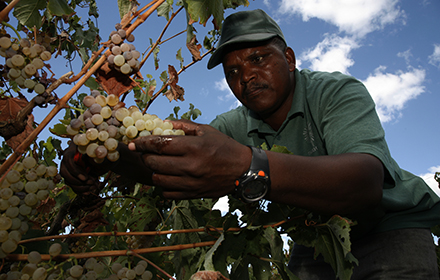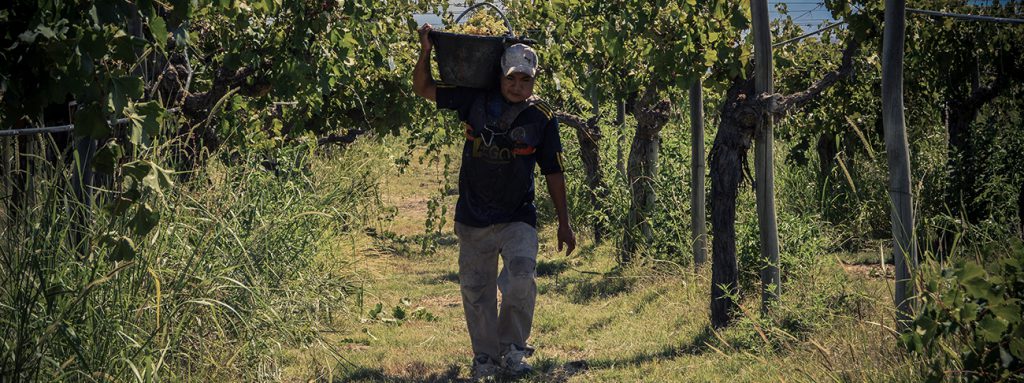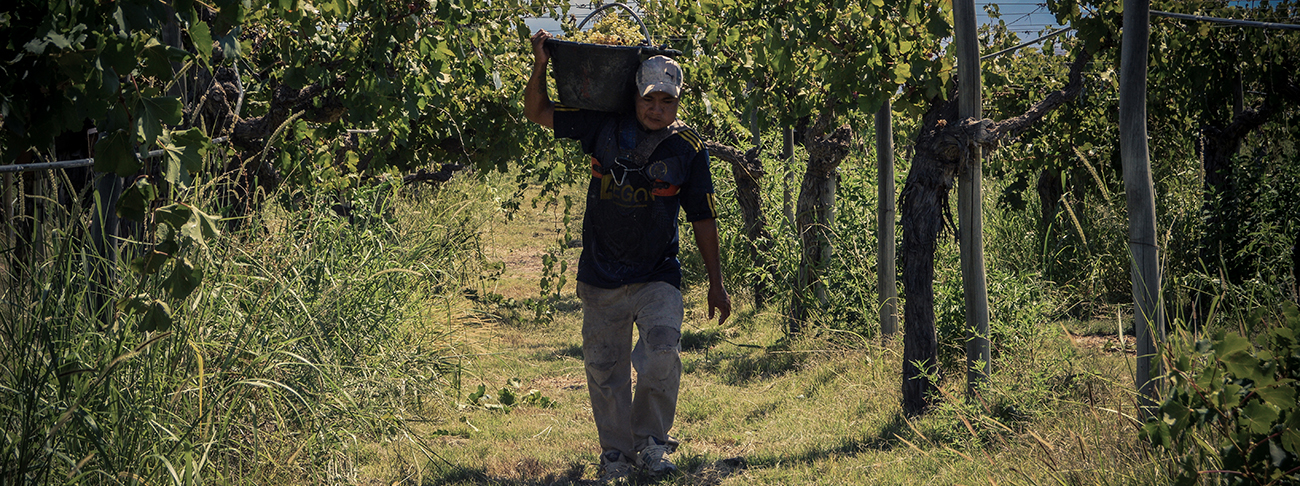Wine is produced in over 50 countries around the world and is one of the world’s most well-known and popular beverages.

From once being a vehicle for discussion in Greek and Roman times, wine is today a social and cultural phenomenon.
Wine grape farming and wine-making are time-consuming industries, strenuous and labour-intensive. The demanding processes involved in the production of wine often lead to poor labour standards and living conditions for both small wine grape farmers and hired labourers on large plantations.
Fairtrade Standards are designed to improve employment conditions and protect the rights of workers on wine grape plantations and to support small wine grape farmers’ organisations in gaining more control within supply chains and increase their incomes. There are 38 Fairtrade wine producer organisations worldwide, across South Africa, Chile and Argentina, representing more than 5,440 farmers and workers.
South Africa is the largest producer of Fairtrade wine globally, with 24 producer organisations, and accounts for around two- thirds of Fairtrade wine sales. Chile also produces a high proportion of Fairtrade wine, with 9 producer organisations in country. Both of these countries have been witness to unique economic, social and political challenges.
The apartheid system in South Africa limited the opportunities for economic advancement of the majority of the population and left a legacy of poor employment conditions and labour relations in the wine industry. These problems include highly unequal land distribution and a history of paternalistic labour relations, rampant alcoholism among workers, low wages, inadequate housing and labour practices which often discriminate against women.
Chile has a long history of co-operatives in wine grape growing and wine making but many went bankrupt during the Pinochet regime. Many surviving farmers are located in areas of extreme poverty and struggle with low market prices that do not generate sufficient income to meet the needs of their families.
Fairtrade Standards include payment of the Fairtrade Minimum Price that aims to cover small wine grape farmers’ average costs of production. Fairtrade certified plantations must provide decent working conditions for workers and protect their rights in line with core International Labour Organisation Conventions, including the right to join a trade union and collectively negotiate their working conditions, a safe and healthy environment and no discrimination or child labour.
In 2018, 49,601 MT Fairtrade wine grapes were sold globally. Small farmers and workers on plantations receive the additional Fairtrade Premium for these sales, which amounted to €1,723,436 in 2018. The Premium is invested in improving farm practices, education, healthcare and training programmes that benefit farmers and workers, their families and communities.
Our wine
La Riojana Co-operative, Argentina
La Riojana is a co-operative of small-scale grape farmers in northwest Argentina who also process, bottle and export their wine to Europe and the US.

